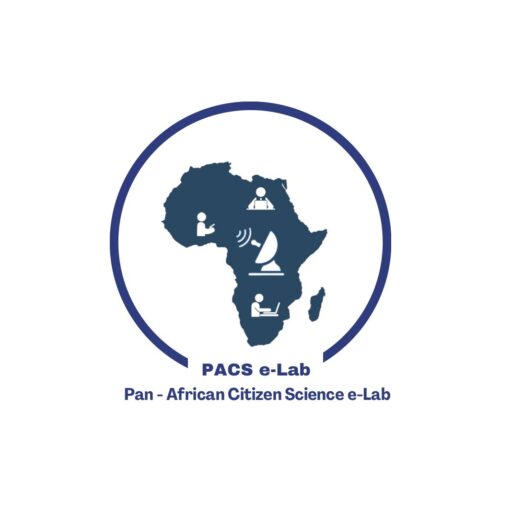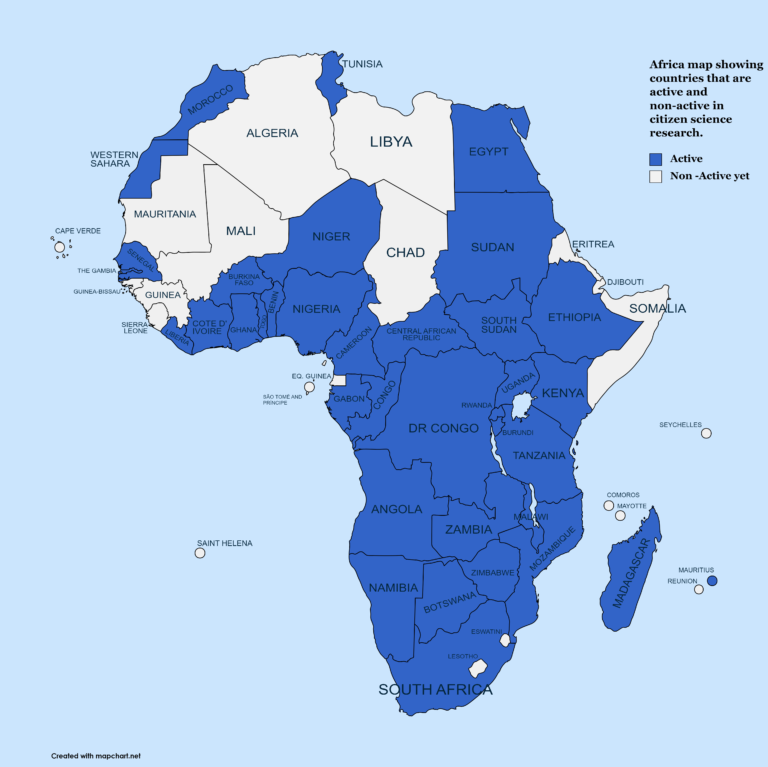Welcome to the
PACS e-Lab
(Pan African Citizen Science e-Lab)
Promoting Citizen Science and Soft Astronomy Research in Africa for sustainable development
INTRODUCTION
Welcome to the Pan African Citizen Science e-Lab (PACS e-Lab) platform, the leading platform in Africa for engaging the public in citizen science research projects related to astronomy. Our activities promote hands-on space science and astronomy awareness in Africa to enhance Africans’ knowledge and skills in this field. We are a very inclusive and diverse community with a network throughout Africa and beyond. We provide opportunities for African teachers, students, and astronomy enthusiasts to engage in cutting-edge research. We pay special attention to underrepresented communities in Africa without activities in space science and astronomy.
We use robotic web telescopes in most of our research and we have access to a number of them, such as the Micro Observatory, the Las Cumbres Observatory, and sometimes the Slooh telescopes. Our projects are carried out in groups, and we provide live training in different areas, such as data acquisition through web telescopes, data analysis with various astronomy software, image processing, and research writing. The different research activities are:
Asteroid Research
This project is run by the International Astronomical Search Collaboration (IASC) and PACS e-Lab is their biggest partner in Africa. The project is also a prerequisite for all our projects. In this area, we train individuals on how to use the Astrometrica program to search for asteroids with old datasets. They learn how to analyze these datasets, prepare a Minor Planet Center Report, and submit it to the Minor Planet Center at Harvard. We then proceed to register these groups on IASC’s Pan African Asteroid Search Campaign group to receive fresh data to analyze. The campaign is monthly, and each team receives a certificate of participation from IASC. A week later, their reports are evaluated by IASC for true or false asteroid reports. If they are true, they become preliminary discoveries. These will be further evaluated for six months to one year to determine if they are real asteroids. If they are, they become provisional discoveries and will be given provisional numbers and cataloged. After some years, the team will be able to name their discoveries.
Additionally, the asteroid research citizen science project is part of NASA’s planetary defense program, which aims to monitor asteroids that can potentially hit Earth in the future.
Exoplanet Research
This project is conducted by NASA Exoplanet Watch, and PACS e-Lab is contributing by involving African citizen scientists. The initiative serves as a follow-up study to previously identified planets by the TESS and Kepler missions. Its primary objective is to contribute to the detection of exoplanets and refine the Mid Transit Time for these celestial bodies. This refinement is crucial for upcoming missions involving the James Webb Space Telescope and the Nancy Grace Roman Space Telescope.
Participants will receive training on observing and capturing images of stars using the Micro Observatory web telescopes, focusing on stars with potential exoplanets. Additionally, they will learn to conduct photometry using the EXOTIC programs to generate a light curve. The acquired skills will also include submitting observation reports to the American Association of Variable Star Observers. Importantly, this activity is not time-limited and can be undertaken whenever the team has available free time.
Astrophoto Visual Development
Unlike our other projects, which are research-based, this is not a research activity, but an important skill for amateur astronomers to process deep space images in order to produce beautiful visuals. We train our participants on how to retrieve archival datasets from the Hubble Space Telescope, James Webb Space Telescope, and Las Cumbres Observatory. You will learn how to acquire these datasets and process them with software like Photoshop, Fits Liberator, Siril, Gimp, etc. to produce colorful visuals.
Research Writing
This is not the last of our projects though, and it involves writing research papers on different kinds of celestial objects within our Milky Way galaxy, such as double stars, variable stars, etc. You will use the Las Cumbres Observatory for data acquisition and different programs to process the data. You will write papers and submit them to the appropriate journals. This research should be completed within two months.
Conclusion
The English language is our main mode of communication; however, we have worked with many individuals who have reproduced our materials in French, Arabic, or other local languages that are spoken in Africa and they would like to connect with you.
We offer live training sessions, but in cases where the internet connection is poor or costly, or you do not prefer live training, we will recommend our recorded tutorials to you.
The ability to learn from recorded tutorials is an added advantage to you.
The amount of data subscription you will exhaust, by participating in our program, is less than the amount you would spend on social media. So, working with us will help you reduce the amount of time and resources you spend on social media and make you useful to science.
All our projects are computer-based and Windows OS is preferred. We have no restrictions on age, gender, sexual orientation, or religion.
We regularly add new projects. We hope that you succeed in the ones we have for you. good luck!
Our Research Telescopes
Las Cumbres Observatory, MicroObservatory and Slooh
Introduction to PACS e-Lab
OUR ACCOMPLISHMENTS
In 2021, Bongiwe Mkhabela from South Africa while in her finals at high school led her classmates in the asteroid research endeavor. She is now a college student in the University of Pretoria studying mining engineering.


Chidozie (left) and Akintola (right), both PhD physics candidates in the US, shared in their combined discovery of the asteroid 2021 OF15. In 2021, they participated as part of the Astronomers without Borders Nigeria team.


Ms. Sarah Abotsi-Masters led her Ghanaian team, PRAGSAC in 2021 and made a provisional discovery of asteroid 2021 PV141.


Dr. Joseph Ntahompagaze is a lecturer and a researcher in the physics department of the University of Rwanda, College of Science and Technology. Since 2021, he has been active and has led his team in the asteroid hunting exercise.

Mr. Christian Gbaba, an amateur astronomer from Togo, led his team, the Association of Togolese Astronomers in 2021 and they discovered two asteroids: 2021 VG27 and 2021 VU48.

Ms. Tengwi Omela (she/her), who was the Vice President of the Astronomy club of the University of Buea, has been and still is active in engaging her team in citizen science research since 2021, and even to this day, she is a graduate.


In 2021, Mr. Dennis led his team, the Space Partnerships and Research Company in asteroid research and one of them detected an asteroid with the provisional number 2021 VD60. They joined and worked as a team from their different locations in Kenya.

Dr. Abdel Aziz who is the President of Association Ivoirienne d’Astronomie, since 2022 has been utilizing citizen science as a tool for education in Ivory coast.




Meet Mr. Joseph Mafuka participating in the asteroid research with some of his team members from the Astro-Club Kongo Central. They have been active since 2022




Asteroid Research Training Session of Dr.Aziz's students in Ivory Coast




Mr. Andoniaina Rajaonarivelo is the co-president of the Haikintana Astronomy Association, dedicated to promoting astronomy in Madagascar. Since 2022, he has been leading his team in asteroid research efforts.






Presentation of certificates of achievement by Mr. Andoniaina Rajaonarivelo to his team for the discovery of the asteroid 2022 UJ79.








Nigerian Citizen Astronomers over the past 3 years have been the pioneers of citizen science in Africa. They also have recorded the most discovery of asteroids








More participation from the Amateur astronomical Society of Kenya led by Samuel.

Students from the National University of Science and Technology in Zimbabwe have actively engaged in asteroid research since 2022. The team, led by Ms. Thobekile Ngwane, is currently conducting Masters studies with a research focus on asteroids and instrumentation.

Amateur astronomers from the Republic of Benin have actively engaged in asteroid research since 2021. The team is led by Prudence.

Amateur astronomers from Mozambique have been actively engaged in asteroid research since 2021. The team, led by Edson, has achieved notable accomplishments, which have been publicized on international news stations and blogs


Since 2021, students from the University of Botswana have been actively involved in asteroid research. The research team, under the leadership of Molly, is contributing to advancements in the field.

Meet Dr. Salma Sylla, the first female Senegalese to attain a PhD degree in Astrophysics. She and her team of students have been participating in asteroid hunting since 2022, and it is an honor for us to collaborate with such a rare and distinguished figure.

Meet Ms. Regaibi Salma is one of our team leaders from Morocco who engages students from her association in citizen science research. She is the president of the Steps into Space Association

Ms. Rose is one of our team leaders from Uganda. Since 2021, she and a team of students and educators from the National Curriculum Development Centre have been participating in asteroid searches and have made a provisional discovery of asteroid 2022 HK11


Meet our citizen science team from Sudan, led by Ahmed Saeed. They have been active in this exercise since 2021.

Learn about our give away programs at "Our Give away" page



Our Malawian team, Celestial Explorers, led by Bauleni Bvumbwe, was the first to receive a telescope from PACS e-Lab. The team is currently using it for astronomy outreach and school visits in Malawi while remaining actively involved in our projects. The telescope was donated by Jean Pierre Grootaerd.



